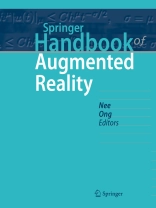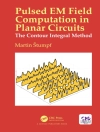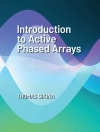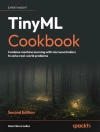The Springer Handbook of Augmented Reality presents a comprehensive and authoritative guide to augmented reality (AR) technology, its numerous applications, and its intersection with emerging technologies. This book traces the history of AR from its early development, discussing the fundamentals of AR and its associated science.
The handbook begins by presenting the development of AR over the last few years, mentioning the key pioneers and important milestones. It then moves to the fundamentals and principles of AR, such as photogrammetry, optics, motion and objects tracking, and marker-based and marker-less registration. The book discusses both software toolkits and techniques and hardware related to AR, before presenting the applications of AR. This includes both end-user applications like education and cultural heritage, and professional applications within engineering fields, medicine and architecture, amongst others. The book concludes with the convergence of AR with other emerging technologies, such as Industrial Internet of Things and Digital Twins.
The handbook presents a comprehensive reference on AR technology from an academic, industrial and commercial perspective, making it an invaluable resource for audiences from a variety of backgrounds.
Jadual kandungan
Part I: Historical Developments.- Historical Developments and the Present State-of-the-Art.- Part II: Principles and Fundamentals.- AR Fundamentals and Associated Sciences.- Principles of Object Tracking and Mapping.- Part III: Software Toolkit and Techniques.- AR Software Development and Techniques.- Commercial AR Tools.- Part IV: Hardware and Peripherals.- Hardware and Peripherals.- Display Systems.- Tracking Systems.- Input Systems.- Part V: Application Areas.- Arts and Crafts.- Advertising.- Sports.- Tourism.- Education and Training.- Environment.- Fashion and Design.- Navigation and Guidance.- Architecture, Building and Archaeology.- Assistive Technologies and Rehabilitation.- Engineering and Science.- Logistics and Transportation.- Maintenance and Repair.- Medical and Surgery.- Military and Warfare.- Part VI: Content and Interface Development.- User Interface Development.- Part VII: Convergence with Emerging Technologies.- Internet of Things.- Industry 4.0, Digital Twin.
Mengenai Pengarang
Andrew Y C Nee, a professor at NUS. He received his Ph D and DEng from Manchester and UMIST respectively. He is Fellow of the International Academy for Production Engineering (CIRP) and its president in 2012, Fellow of the US Society of Manufacturing Engineers and its Gold Medal recipient in 2014. He is a pioneering leader in manufacturing research and education. Currently, he serves on 20 editorial boards of refereed journals in the field of manufacturing. He is Editor‐in‐Chief of Springer’s longstanding International Journal of Advanced Manufacturing Technology and Executive Editor‐in‐Chief of Advances in Manufacturing. He has published over 400 papers in peer‐reviewed international journals, 250 papers in conference proceedings, and has authored and edited 22 books and 25 book chapters. He has graduated 53 Ph D and 47 Masters students. He has received over 19569 GS citations and an H‐Index of 72 (June 2021). He holds honorary professorship from Tianjin, BUAA, NUAA, Shanghai, and HUST. He is Fellow of Academy of Engineering Singapore (2012). Some of the major international awards he received include: SME Gold Medal (2014), IEEE Kayamori Award (1999), IJPR Norman A Dudley Award (2003), IMech E Joseph Whitworth Prize (2009), SME Outstanding Young Manufacturing Engineer Award (1982).
S. K. Ong is an Associate Professor in the Mechanical Engineering Department at the National University of Singapore. Her research interests are virtual and augmented reality applications in manufacturing, ubiquitous manufacturing, assistive technology and rehabilitation engineering. She has published 7 books and over 320 international refereed journal and conference papers. She has graduated 31 Ph D, with GS citation of 9313 and H-Index 52 (June 2021). SK Ong received the 2004 Eugene Merchant Outstanding Young Manufacturing Engineer Award from the US Society of Manufacturing Engineers. In August 2012, she is elected a Fellow of CIRP, The International Academyfor Production Engineering. She has also received various other awards including the 2004 Singapore Youth Award for the Science & Technology Category, The Outstanding Young Person of Singapore Award for the Science & Technology Category, the 2009 Emerging Leaders Award in Academia by the US Society for Women Engineers, and the 2013 Singapore Youth Award Medal of Commendation.












